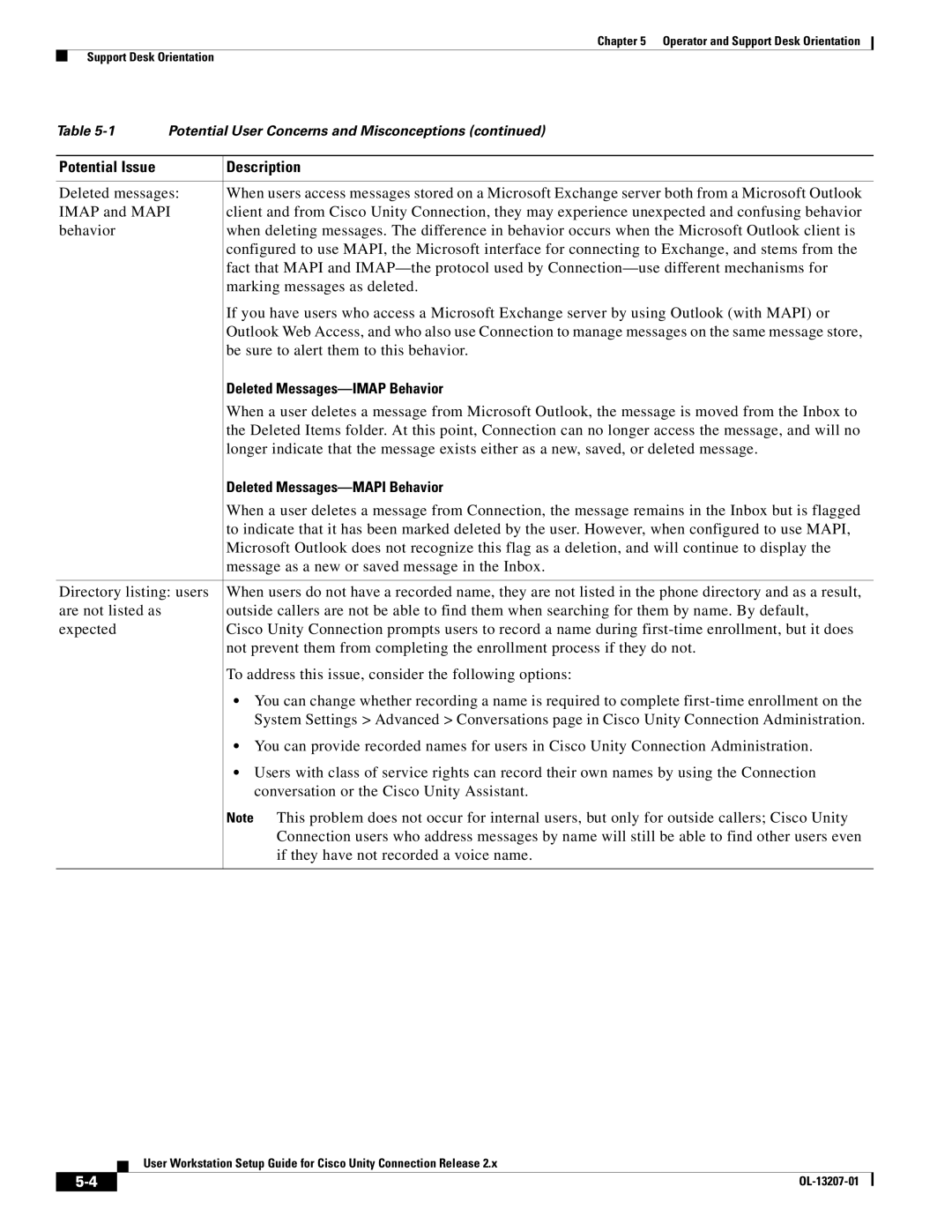
Chapter 5 Operator and Support Desk Orientation
Support Desk Orientation
Table | Potential User Concerns and Misconceptions (continued) | |
|
|
|
Potential Issue |
| Description |
|
| |
Deleted messages: | When users access messages stored on a Microsoft Exchange server both from a Microsoft Outlook | |
IMAP and MAPI | client and from Cisco Unity Connection, they may experience unexpected and confusing behavior | |
behavior |
| when deleting messages. The difference in behavior occurs when the Microsoft Outlook client is |
|
| configured to use MAPI, the Microsoft interface for connecting to Exchange, and stems from the |
|
| fact that MAPI and |
|
| marking messages as deleted. |
|
| If you have users who access a Microsoft Exchange server by using Outlook (with MAPI) or |
|
| Outlook Web Access, and who also use Connection to manage messages on the same message store, |
|
| be sure to alert them to this behavior. |
|
| Deleted |
|
| When a user deletes a message from Microsoft Outlook, the message is moved from the Inbox to |
|
| the Deleted Items folder. At this point, Connection can no longer access the message, and will no |
|
| longer indicate that the message exists either as a new, saved, or deleted message. |
|
| Deleted |
|
| When a user deletes a message from Connection, the message remains in the Inbox but is flagged |
|
| to indicate that it has been marked deleted by the user. However, when configured to use MAPI, |
|
| Microsoft Outlook does not recognize this flag as a deletion, and will continue to display the |
|
| message as a new or saved message in the Inbox. |
|
| |
Directory listing: users | When users do not have a recorded name, they are not listed in the phone directory and as a result, | |
are not listed as |
| outside callers are not be able to find them when searching for them by name. By default, |
expected |
| Cisco Unity Connection prompts users to record a name during |
|
| not prevent them from completing the enrollment process if they do not. |
|
| To address this issue, consider the following options: |
•You can change whether recording a name is required to complete
•You can provide recorded names for users in Cisco Unity Connection Administration.
•Users with class of service rights can record their own names by using the Connection conversation or the Cisco Unity Assistant.
Note This problem does not occur for internal users, but only for outside callers; Cisco Unity Connection users who address messages by name will still be able to find other users even if they have not recorded a voice name.
User Workstation Setup Guide for Cisco Unity Connection Release 2.x
| ||
|
